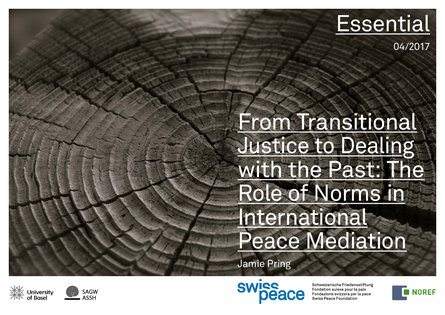
Many governments, civil society and peacebuilding actors forward that peace after years of violent conflict cannot be sustained without addressing the grievances and calls for justice by victims, their families and societies as a whole. Transitional justice, defined as “the full range of processes and mechanisms associated with a society’s attempts to come to terms with a legacy of large-scale past abuses, in order to ensure accountability, serve justice and receive reconciliation,” has been argued as essential in the full recovery and rebuilding of a divided society.
This publication is part of a research project initiated by NOREF and swisspeace exploring how the growing framework of legal and social norms influences mediation practice. The research involved interviews with more than 20 mediators and mediation experts.